Note: The following article contains major spoilers for Spiritfarer.

Video games are no strangers to death. In fact, death might rear its morbid head here more than in any other medium. Because games are for people, agents in gameplay systems get anthropomorphised. When those agents are removed from the play space, it's intuitive to narratively contextualise it as them dying because death is when people are removed from the world. And many video games are action empowerment fantasies. To decide whether someone lives or dies is the most control you can have over them: the ultimate empowerment fantasy. That control applies not just to enemies but also to the helpless we may be meant to save. There is nothing wrong with empowerment fantasies, but two of the purposes that art serves are to depict the real world and guide us in our lives. And you can't always describe death as a fate we can evade or pull innocents from the path of because eventually, we must all meet it head-on.
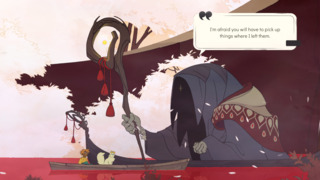
In many historical mythologies, the dead were accompanied to the afterlife by escorts: "Psychopomps". Think Anubis in Ancient Egypt or Charon for the Greeks. That these characters recur so frequently in unconnected religions reflects a common desire for company in our final moments. In Thunder Lotus's 2020 game Spiritfairer, Charon hangs up his robe and lays down his paddle. He bequeaths his ship to our fresh-faced protagonist, Stella. Stella perceives spirits ready to make their journey to the end as animals, usually with some human features, and each arrives with a different personality and life story.
There's Summer the snake, the former fossil fuel suit turned spiritualist who reveres inner peace and self-reflection. There's the big-hearted Atul who loves nothing better in the world than feeding his friends and lending them a webbed hand. There's the erudite owl Gustav who goes weak at the knees appreciating a fine piece of art, and many more. Stella wants to be more than a ferryman to these deceased. She intends to house these passengers, feed them, listen to them, and help them resolve their unfinished business before delivering them to an ambiguous future behind "the Everdoor". You pursue these ambitions through fetch quests, crafting, resource gathering, or now and then, just giving people space. In co-op mode, the accompanying player can become Daffodil, the fluffy feline who sticks at Stella's side through thick and thin.
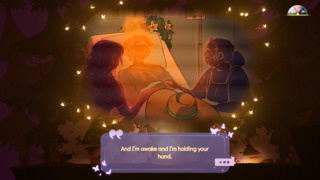
While Spiritfairer costumes itself as fantasy, there's nothing fictional about the type of care it depicts. Stella's mothering of her crew is something happening on hospital wards and in hospice beds in the real world every day. There's a hallucinatory sequence in the game's back half where we learn Stella works on one such ward, but Spiritfairer doesn't need that scene. If a metaphor lands, you don't have to explain it. And though Thunder Lotus romanticises its subject matter, their work's emotional component is solidly realised.
Spiritfairer can facilitate altruism where many other systemically-driven games can't because it dares to not make the player character the centre of the universe. Giving to others is definitionally providing them objects or services when you won't receive anything of equal value in return. However, games that have us step into a hero's shoes are also often games that try to ply us with rewards, especially material rewards, equivalent to the work we perform. Defeat the crazed PMC leader and steal his epic SMG, save the town and have a local cross your palm with gold. Even the easygoing Animal Crossing: New Horizons makes donating presents impossible because every time you hand a fuzzy sweater or an antique table to an adorable villager, they pass something back. That's not gifting, that's trading, and there are totally different social connotations between gifting and trading. The gap between the two is the gap between kindness and business.
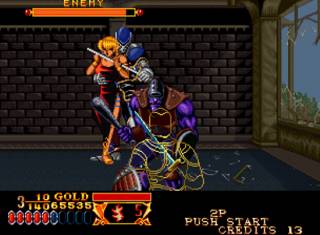
Honestly, this retributive dynamic pops up all over media. A lot of action has traditionally promised its protagonist "save the world, get the girl," or else, the main character has a good chance of earning money or being elevated to legend in their community by performing some valorous deed. Romances often reward the main character with their dream partner if they commit to brave acts that prove the extent of their love. Spiritfairer's universe is not so reciprocal.
When you organise a meeting between Astrid and her ex, you do not receive 500XP. When you discover Jackie's favourite food, he does not pay for you to set up a zipline on your ship. In this title, care is not an activity that helps you achieve your objective; it is your objective. In this hobby, we're often used to wearing personal attributes like a level and stats that we expect other characters to help us upgrade. Stella doesn't have those metrics embedded in her. Nor does she own an extensive equipment set. So, the designers don't have to think about bumping up those figures and dropping loot every time she finishes a job.
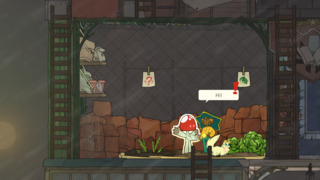
Some quests reward resources, but many don't, especially those you complete for your passengers. If you can keep a soul on board the ship content, they'll occasionally throw you a token of their appreciation. However, they're not doing it in direct response to you completing any one goal, so it doesn't come across as transactional. When the animals do give you a substantial reward, they don't opt for the coldly utilitarian but something sentimental or experiential. Maybe it's a crayon drawing or a lesson in woodworking.
One gentle touch that vividly realises your connections to the crew is the hugging. If you've not cuddled one of your passengers in a while, you can walk up to them, press a button to hold them, and have their "happiness" variable increase. It's not difficult to hug someone, but that's not the point. The verb is written into the game because it can bring you close to the characters and make them feel wanted, challenge be damned. Spiritfairer also shows that it thinks highly of these embraces by giving every character a distinct and detailed hug animation, a choice which further helps pin down how they vibe with other people. The jovial Atul wraps his arms around us in a bear hug while the excitable child Stanley throws himself at our torso. Alice is loving but needs plenty of support and leans on us as she holds us. Daria, who lives in a hallucinatory demi-dream, sinks into our grasp. Honestly, I could write one of these for every character.
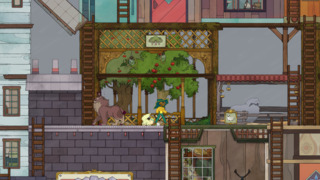
Spiritfairer also shifts our gaze from nourishing meals and warm beds to expand our definition of care. We typically take "care" to entail giving an ear to peoples' pain and putting food on their plate, and as discussed, you do do that. We also take care of livestock and tend gardens which mirrors Stella's nurturing of her tenants. But there's something more than that going on. Manufactured goods are indispensable to our mission; a character might request glass ornaments in their quarters, or you may need alloys to expand the land on which they can live. Therefore, forging and glassworking become as important to giving someone a home as cooking them stew or proffering life advice. Even when you're preparing meals, you need to farm for ingredients. To construct buildings, including bedrooms, you need to mine minerals and chop wood. The game opines that a carer can be a sympathetic friend or a cook, but they could also be a lumberjack, a blacksmith, or an angler.
With its reverence for manual labour and practical products, you might expect Spiritfairer to fall into the trap of dismissing service workers, artists, emotional labourers, and people unable to work. Nothing could be further from the case. Not only does it show Stella's companionship to be integral to the wellbeing of the dying, but lodgers like the elderly Beverly or the hospitalised Daria can't contribute labour. Yet, the game considers them no less worthy of love. Then you have non-manual workers such as the teacher Elena or the critic Gustav whose jobs it treats as just as legitimate as anyone else's. Gustav, it also notes, is productive in his writings and respectable in that he has a profound appreciation for art: creation by other people.
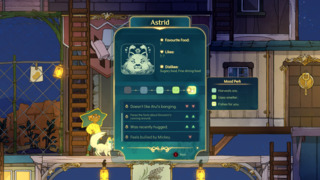
Unfortunately, the game's conceptions of labour and its consequences get it into trouble in a couple of other ways. Spiritfairer calculates the happiness of a passenger by adding up a list of negative and positive mood modifiers. A negative modifier might be having been bullied by a neighbour, while a positive modifier could be having just eaten their favourite food. What's atypical about this system is that you won't always be able to control what modifiers are applied to a character. Sometimes a spirit receives a haircut to their joy because of a messy breakup or the loud banging of another passenger, and there's nothing you can do to change that.
Most games let you determine everything about a character under your supervision because control means empowerment. However, an independent person needs their own highs and lows that aren't all about you. In the real world, sometimes you can't cheer up a friend, no matter how much you want to, and Spiritfairer internalises that. Where this system comes off the rails is it doesn't lend its modifiers the correct weights for the life events they embody. A character might suffer a tragic loss and tell you they're torn apart inside, but you can hug them, throw them some popcorn, and their stat sheet will report they're walking on cloud nine. You'd also think these characters' imminent demises might bug them a little more than they do. Their impending deaths don't get a mood modifier associated with them at all. It's not that you can't remain content while comprehending your own mortality, but it should realistically be a bummer for some of the characters some of the time, right?
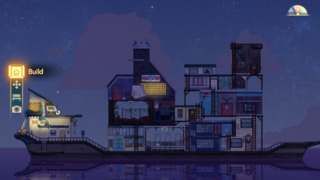
There's a juxtaposing oversight in the mechanics. As you set out in your career as a psychopomp, you supervise a small tribe that request goods you can cobble together with few materials. So, you're spending a little time gathering and processing resources every day and plenty of time on completing characters' mainline quests, thereby advancing their narrative arcs and indulging in authentic interactions with them. But as the game sails ahead, your ship takes on more wayward souls, and your projects require materials that take more steps to manufacture.
In the early days, you might fell some trees, cut the wood from them into planks, and then hammer those planks into a home. But deep into the game, you might have the shipwright slap a new prow on your vessel so you can sail to an island with a new type of ore. Then, you mine that ore, smelt it into ingots, and press those ingots into sheet metal, and that sheet could easily be one of three components you need to craft a single building or decoration. You're spending less time by any one character's side and more time guiding other passengers or off in the foundry smashing rocks. It's not a de facto flaw to have your characters become distanced like this. The problem is that this piece of media is about empathy but seems oblivious to the impacts of neglecting a relationship. Your animals will be ecstatic, even if you spend all day working yourself to the bone, then show up in the evening to hastily toss them a dinner and make brief physical contact.
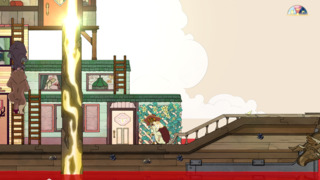
By the time you're done with a spirit, you'll be able to recite the same two or three prebaked lines they throw out every time you extend them a meal or a hug. A friend can temporarily fade into a box-ticking exercise, merging into the ship's machinery. Without a more personal link to your dependents, feeding coal into a furnace becomes only aesthetically distinguishable from feeding pizza to an eagle.
It's a shame because the setting and the story quests are otherwise humanising and poignant. Your passengers have left their life on land but have not yet docked with death, and similarly, you spend extensive periods sailing the ocean, unmoored between origin and destination. This sojourn before passing also provides characters with the ideal interim in which to study their life. The ritual of rowing characters to the Everdoor, in particular, aids retrospection.
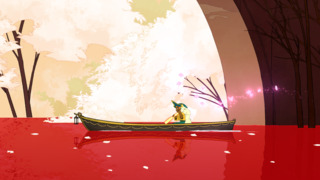
The home stretches for the characters are analogous to funerals, but in Spiritfairer, it's the dying who give the eulogy. They are in a unique and knowledgeable position: it's only after they have lived all their life that they or anyone else can summarise it and extract lessons from it as a whole. The glossy waters beneath the Everdoor provide a literal reflection to match the metaphysical one, and Stella hugs every voyager before they pass through the portal. This final embrace not only reinforces Stella's caring nature but shows how people can find a human connection in dying and being supported in that transition.
After an animal leaves, a constellation forms in the stars representing them, and we usually get a platforming section that extends up into the night sky. On those platforms, we see murals snatched from key moments in their biography. There's an insinuation that in passing their memories to Stella (whose name and hat shape represent the stars), they have found a form of immortality. I developed a couple of rituals of my own out of respect for crew members. If I knew their favourite meals, I'd feed them to them before I said goodbye. I'd procrastinate before taking them to the Everdoor because I didn't want to lose them.
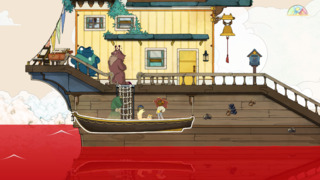
You might think that with fifteen different spirits to comfort and transport that you'd begin to see patterns develop in their stories. Yet, no two of them lived the same life, so no two of them die the same. The variance between the characters is a reminder that death does not discriminate; it comes for the single, the partnered, the compassionate, the selfish, the manual labourer, the thinker. It comes for us all. It also allows the game to communicate a range of lessons about death and make plenty of excruciatingly accurate observations about peoples' final days.
The demise of Gwen was the first, and for me, one of the saddest. She shows you the ropes of play, like seafaring and weaving. So, when she passed away, I kept seeing her in the starting islands she acquainted me with, the loom she taught me how to craft with, and plenty of other places. The game is right: people who've died seep into places and objects. Gwen's exit feels like an appropriately wounding loss, given that she was an old friend of Stella.
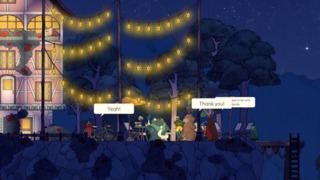
Then there's Atul, another fixture of Stella's family life who lights up any room he enters with his hearty laugh and gregarious demeanour. Atul takes a nice long stay in your lodgings, and then one night, spontaneously disappears, leaving behind the same flower all the other characters do when they die. His story gets at that how, when you become used to someone's presence, it feels like they'll be around forever, and when they do leave, it doesn't seem real. Atul's journey also feels deliberately inconclusive and drives home the point that sometimes there's no indication that a person is going to die, nor does everyone receive the dignity of a burial. We don't always get the chance to say goodbye because, all too often, people just drift off.
As Stanley is a dying child, his subplot could feel emotionally manipulative. However, the game avoids any cheapness by making the psychology of a child factor into how he processes death. As you paddle him to the Everdoor, there are moments where he thinks his end must be his fault, regrets the times he acted out, and strains to tell Stella that he attempted to behave. It's heartbreaking because there's no way you could make him fully understand that his death is not a punishment for his actions and that he was a wonderful person. It could be difficult enough for an adult to grasp these concepts, but Stanley is a kid; he doesn't have the mental toolkit for this. That makes him all the more amazing when he finds a silver lining at the last second.
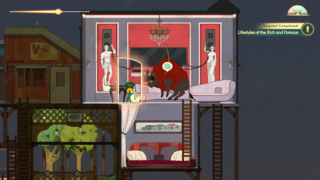
Bruce and Mickey arrive late in the day when you might assume you can overcome any tragedy, no matter how sorrowful, but these two challenge you in a new way. The duo are hard-nosed thieves, which the script sometimes spins with a corny West Side Story cadence, and it is fun to tag along for their last big score, but they are genuinely horrible too. They steal from whoever they want, threaten us if we don't bring them meals to their taste, bark orders, and bully every other passenger on the ship, dragging down their mood. With the game's bittersweet optimism, you might assume that these lifelong criminals will see the error of their ways and reform before they travel to the Everdoor, but when the time comes, they don't indicate one shred of remorse.
Being assholes is all Bruce and Mickey have ever known; it's how they've survived. They don't believe in change, and you're not going to undo a lifetime of selfishness in the scant days before they expire. I've never encountered a test like this in a video game before: we are asked to care for people who don't and won't care for anyone else. While I don't think Bruce and Mickey's comfort should come at the expense of other visitors, in the end, I did feel that they deserved a proper send-off.
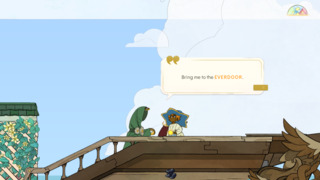
While those thieves were unable to get on the straight and narrow, Summer has the opposite problem. She made her income ransacking the Earth and pumping its veins full of poison. She tries to atone for those sins and reconcile with the demons of her past, but she can't. Some people go to their graves unable to make peace with who they've been in life. Summer is one of them.
The elderly Alice also falls apart at the eleventh hour. It's common for characters to request services or a change of accommodation from us, so when Alice started doing that, it didn't ring alarm bells for me. It's also not rare for characters to enter a slump from which they later emerge. Alice was my first contact with a spirit who didn't. Initially, she asked me to move her bedroom to the bottom floor so it was easier for her to get about; then she started losing her memory; then she needed me to hold her arm as we went to the deck and back every day. She never recovered from that. Her mind and body give out on her, and that's how she goes because that's how a lot of people go. Almost all the main characters in the game end up dead, but Alice is the only one who physically feels like she's dying.
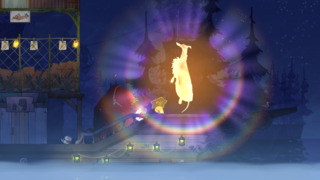
Two of Spiritfairer's most closely-held beliefs about death are that there's not necessarily justice in it and that not everyone accepts it. Sometimes characters are able to tie up their loose ends before leaving, like Gwen, who squares away her estate, or Buck, who earns the title of Master Adventurer at Crow's End Inc. You can also get a Beverly, who has experienced both pain and pleasure in her life but doesn't have a conflict to be resolved. Yet, for every contented consciousness, there's an Atul, Summer, Stanley, or Alice. Not only can you not always brighten a friend's mood, but you can't always make sure the world does right by them either.
Spiritfairer gets grim, and games that want to drag you into the pits of despair frequently make their worlds as hostile as possible. Yet, when characters are subject to constant attacks, they do not have the safety net to be emotionally vulnerable. It's in that emotional vulnerability that people can spill their guts and come face to face with their darkest feelings. In Spiritfairer, there's at least as much happiness to be found as there is anguish. Still, by providing emotional nourishment, Stella gives people a supportive environment in which to unravel their pain and in which to have someone recognise and soothe it.

Contrary to what you might expect, it's a more solemn game for having a more forgiving world. And while your crew don't always get what they deserve, they do all get seen. When we find them on land, they are a bundle of robes with a pair of eyes peeking out. Yet, when we bring them aboard Stella's ship, they take on a unique and lovingly crafted character design that acknowledges who they are inside, from the curious owl to the stubborn bull. Even if they can disappear into the ship's gears and pistons along the way, every passenger gets two arms around them in the end. I hope that when my time comes, I have someone like Stella around to give me that love. Thanks for reading.
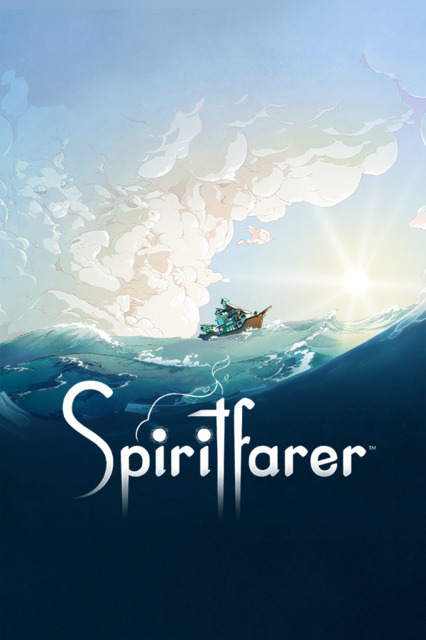
Log in to comment